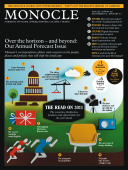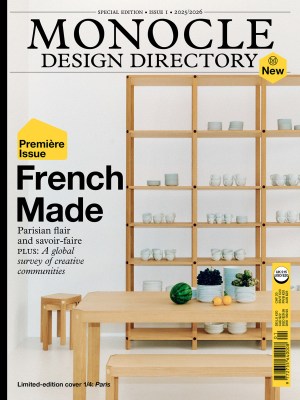
Issue 39
For Monocle’s December-January double issue, we look at the subject of soft power and rate the 25 countries who lead the way with cultural and social diplomacy.
In This Issue
Oops! No content was found.
Looks like we no longer have content for the page you're on. Perhaps try a search?
Return Home

